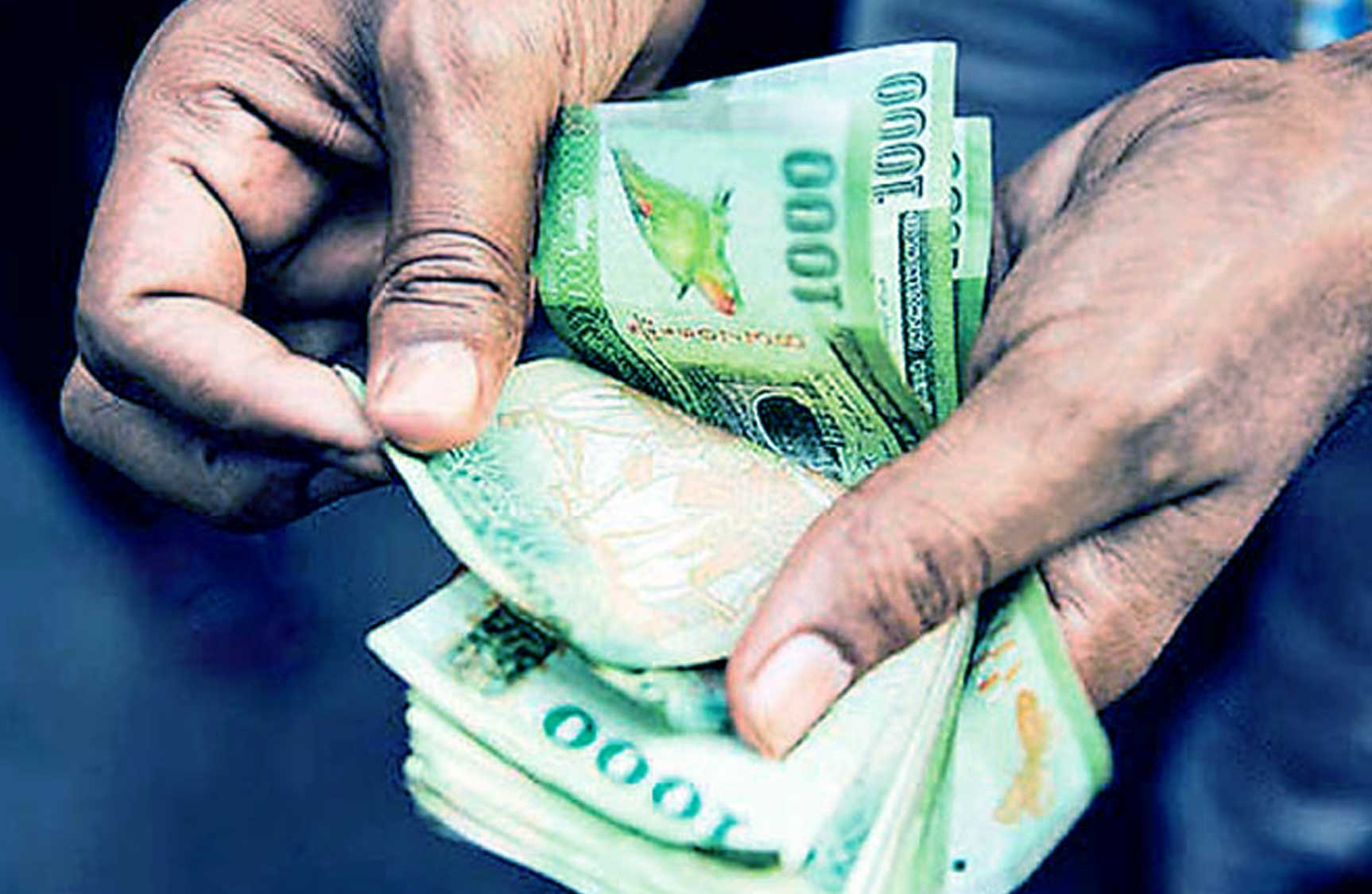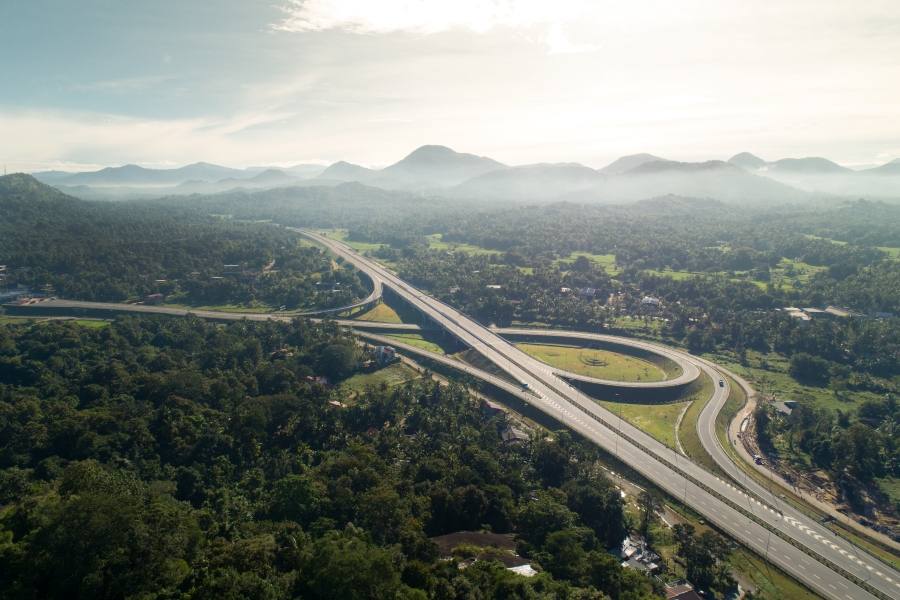
Bankruptcy and Economic Crisis of Sri Lanka
Description
In 2022, Sri Lanka faced its worst economic downfall in its independent history, with the Government officially declaring bankruptcy and defaulting on its debt for the first time[i]. While the Government declined calls to approach the International Monetary Fund (IMF) for a bailout and debt re-structuring program for a considerable period, the remainder of foreign reserves were utilized to source for essential imports and energy[ii]. The continuous economic decline, exacerbated and led to shortages of essentials including food, medicine, fuel and LP Gas, victimising the entire nation in an unprecedented manner[iii]. Nearly 13 hour-long daily power outages[iv] (later reduced to 1-2 hours)[v] and lengthy queues for fuel which at times exceeded 24 hours to obtain a limited number of liters of fuel for vehicles/ daily consumption, were commonplace. The Mistry of Power and Energy introduced a “National Fuel Pass” and implemented the system at all outlets managed by the Ceylon Petroleum Corporation and Lanka IOC, to avoid the panic buying of fuel and curb excessive fuel usage by citizens[vi]. This “allocation-based fuel distribution method” allowed a weekly fuel quota for all registered vehicles. The fuel shortage was caused due to Sri Lanka’s inability to pay for fuel shipments caused by the lack of dollar reserves. In addition, the already waning agriculture sector suffered even bigger losses because of the fertilizer crisis.[vii]
Extended power outages, fuel, gas and essential food shortages and the depreciation of the rupee triggered peaceful protests in Colombo which developed into widespread protests around the county.[viii] The nation-wide civil uprising demanded former President Gotabaya Rajapaksa’s resignation, citing the need for accountability and justice in the system, along with demands for the government to take immediate action to provide essential goods.
Law enforcement personnel, in an attempt to suppress mass protestors, frequently used tear gas, water cannons, wooden sticks and in some instances physical force. Several arrests of peaceful protestors and supporters were also observed as the Government declared a State of Emergency multiple times in an attempt to crackdown protests.[ix]
The government also attempted on several occasions to stipulate new regulations to unlawfully restrict[x] protest, gather and to suppress the freedom of expression guaranteed by the constitution.
Following the uprising of civilians which continued for a several months, the former President was forced to resign from his presidency. This ultimately resulted in the formation of a “new” incumbent government under the new president Ranil Wickremesinghe who was appointed as per the Constitutionally stipulated process.[xi]
What is the corruption?
- Mismanagement of public funds and resources
- Economic mismanagement
- Lack of transparency at policy level decision making
- Abuse of power
- Structural weakening of accountability frameworks
- Inefficiency in governance
- Lack of transparency and accountability
- Lack of open data
- Nepotism
Who were the victims
Citizens of Sri Lanka
What has been done
In light of this, in June 2022, TISL along with three other petitioners, filed a Fundamental Rights petition in the Supreme Court naming thirteen respondents including the Attorney-General (representing former President Gotabaya Rajapaksa), former Prime Minister Mahinda Rajapaksa, former Finance Minister Basil Rajapaksa, former Central Bank Governor Ajith Nivard Cabraal, former Secretary to the Treasury S.R. Attygala and former Prime Minister and incumbent President Ranil Wickremesinghe. This Petition was filed in the public interest and sought to hold several prominent public officials and politicians accountable for the decision-making that brought Sri Lanka to its knees[xii].
The petition highlighted that the reduction in Government revenue caused by the tax breaks, failure to reverse the tax breaks, the decision to continue servicing sovereign debt without any restructuring, and the refusal to seek the assistance of the IMF as being among the main factors that caused the economic crisis[xiii].
In October 2022, the Supreme Court granted the Petitioners leave to proceed[xiv]. The Court also granted a few interim orders and ordered the Respondents to furnish a report on the delay in seeking assistance from the IMF. Furthermore, the Court directed the Governor of the Central Bank Dr. Nandalal Weerasinghe to produce copies of all communications and recommendations made to the former President, former Finance Ministers, etc. TISL continued to share updates with the citizens on this case, while raising their awareness through social media, to get more public attention to it.
The Landmark Judgment – on November 14, 2023, delivering the judgement, the Supreme Court held that former President Gotabaya Rajapaksa, former Prime Minister Mahinda Rajapaksa, former Finance Minister Basil Rajapaksa, former Governors of the Central Bank of Sri Lanka, Prof W.D Lakshman and Ajith Nivard Cabraal, former Secretary to the Treasury S.R. Attygala, former Monetary Board, and former Secretary to the President Dr. P.B. Jayasundera violated the public trust and breached Article 12 (1) of the Constitution, in their administration of the economy, leading to the economic crisis in the country.
The Court made key observations in its judgment –
- The conduct of Respondents directly contributed to the results that led to the crisis situation.
- Respondents ought to have known and should have taken actions to resolve matters that negatively impacted the economy and not further aggravating the impact and are responsible to act in the best interest of the country
- Public officers have a responsibility to discharge their duties in the best interest of the public.
- Respondents are bestowed high power to uphold public trust and are duty-bound to discharge duties according to Directives of the Constitution.
- Respondents cannot shirk responsibility by merely stating that the decisions they took were policy decisions.
- It was within full power of Respondents to prevent such calamity as they had full knowledge.
- It is clear that they did not act and take all measures to remedy the situation in the public interest.
- Cumulative actions and inactions by Respondents led to the debacle.
- The public trust reposed in Respondents was not a higher one and is bestowed on all officers, and therefore Respondents were obliged to act in a responsible manner.
- Actions, omissions and conduct of Respondents contributed to the economic crisis.
https://www.supremecourt.lk/images/documents/sc_fr_195_and_212_2022.pdf
In another matter, overseas travel bans were imposed by the Colombo Fort Magistrate Court on Mahinda Rajapaksa and 16 others, in relation to inciting violence and unrest on May 9th 2022.[xv]
What can be done
- Initiate and encourage victims of the economic crisis to take follow up actions based on the judgment of the Supreme Court
- Demand the parliament to take necessary actions based on the judgment of the Supreme Court
- Initiation of essential anti-corruption reforms [xvi]
- Demand accountability of the public representatives (through publicizing their asset declarations and regulating election campaign financing)
- Demand initiation of asset recovery
[i] https://www.ft.lk/top-story/Sri-Lanka-declares-bankruptcy/26-733409
[ii] https://www.reuters.com/world/asia-pacific/shocks-missteps-how-sri-lankas-economy-ended-crisis-2022-02-25/
[iii] https://www.reuters.com/world/asia-pacific/we-are-going-die-food-shortages-add-sri-lankas-woes-2022-05-20/
[iv] https://www.aljazeera.com/news/2022/3/31/sri-lanka-crisis-forces-13-hour-blackouts-hospitals-stop-surgery
[v] https://cebcare.ceb.lk/Incognito/DemandMgmtSchedule
[vi] https://ceypetco.gov.lk/2022/07/16/ministry-of-power-and-energy-launches-national-fuel-pass-to-streamline-fuel-distribution/
[vii] https://www.spglobal.com/commodityinsights/en/market-insights/blogs/agriculture/081022-sri-lanka-crisis-food-organic-farming
[viii] https://www.reuters.com/world/asia-pacific/shocks-missteps-how-sri-lankas-economy-ended-crisis-2022-02-25/
[ix] https://www.aljazeera.com/news/2022/4/1/sri-lanka-declares-state-of-emergency-as-protests-spread
[x] https://www.hrw.org/news/2022/09/27/sri-lanka-revoke-sweeping-new-order-restrict-protest
[xi] https://www.bbc.com/news/world-asia-62202901
[xii] https://www.tisrilanka.org/tisl-files-petition-in-the-sc-demanding-accountability-for-the-economic-crisis/
[xiii] https://www.tisrilanka.org/wp-content/uploads/2022/06/Public-Petition.pdf
[xiv] https://www.tisrilanka.org/supreme-court-grants-leave-to-proceed-in-the-case-filed-by-tisl-and-3-others/
[xv] https://www.ft.lk/news/Travel-ban-imposed-on-Mahinda-Rajapaksa-and-16-others/56-734756
[xvi] https://www.tisrilanka.org/15-points-on-essential-anti-corruption-reforms-to-revive-sri-lanka%e2%80%af/


